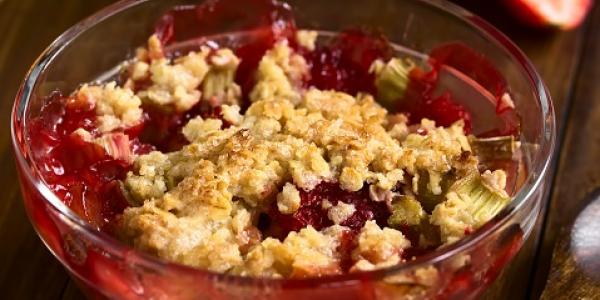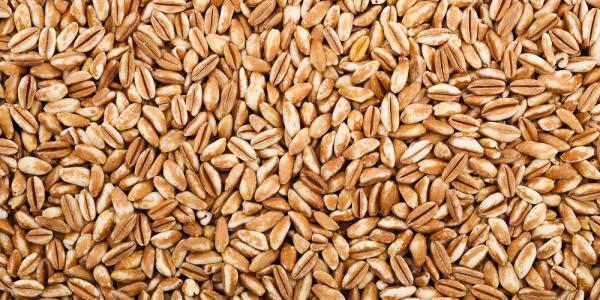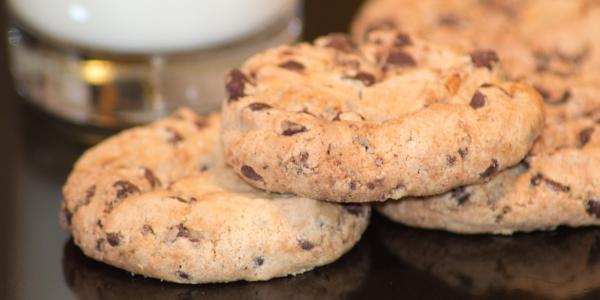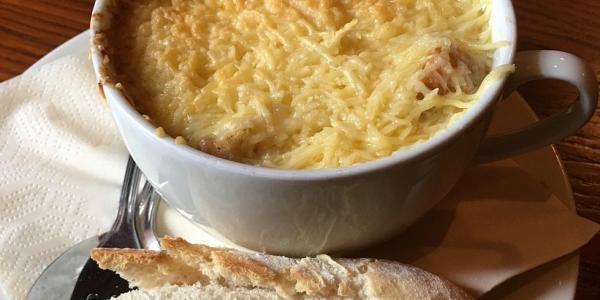Jicama and Pork Salpicón Salad
Ingredients
- Pork
- 1 T. cumin
- 2 t. chili powder
- ½ t. cayenne pepper
- ½ t. smoked paprika
- 1 T. salt
- 2 lb. country style pork ribs
- 1 guajillo chile pepper
- 4 cloves of garlic
- 3 c. water, divided
- 2 T. vegetable oil
- 1 bay leaf
- Salad
- ½ c. red onion, ¼ inch dice
- 2 c. matchstick cut jicama
- 3 heads of romaine lettuce
- 1 avocado, pitted and sliced
- ¼ c. sliced radishes
- Salad Dressing
- 2 T. lime juice
- 2 T. apple cider vinegar
- 1 t. Dijon mustard
- ¾ c. olive oil
- 3 T. chopped fresh cilantro
- ½ t. salt
- ¼ t. black pepper
Preparation
Combine spices and salt. Rub pork with mixture, cover, and refrigerate for 4-12 hours.
Place stemmed guajillo chile in bowl; cover with boiling water. Let sit until chile is softened but not mushy, about 20 minutes. Drain. Transfer chile to blender container along with garlic and 1 cup of the water. Blend until smooth. Set aside.
Heat a heavy bottomed pan over medium high heat. Add oil. When oil is hot, sear pork on all sides, 3-5 minutes per side, to create a nice crust. Add pepper slurry, bay leaf, and 2 cups water so that the pork is covered. Bring to a boil then reduce heat to low and let simmer for 2 hours.
While pork is cooking, prepare vegetables for the salad. Make salad dressing by whisking lime juice, vinegar, and Dijon mustard in a small bowl; slowly whisk in oil. Stir in cilantro; add salt and pepper as needed.
Remove meat from cooking liquid, place in bowl along with onions, and shred meat with a fork. Add jicama to the bowl and toss well. Let sit so the flavors come together for about 15-20 minutes. In a large bowl, toss lettuce with salad dressing, add the pork mixture, and garnish with avocado and radishes.
Learn More About Jicama
Jicama (HEE-kah-ma) is a vegetable unfamiliar to many Americans yet a mainstay in the cuisine of our neighbors in Central America. Native to Mexico, jicama is a leguminous vine, that is, its seeds grow in pods. Most legumes are grown for their seeds but not jicama. Its pods and seeds are inedible. The vine is grown for its tuberous root. The jicama tuber is also called yam bean, Mexican turnip, and Mexican potato.
Jicama looks like a large turnip with dry, brown skin. Just beneath the thin outer layer lies a surprisingly moist interior that is solid and pure white. Lightly sweet and nutty, its crunchy, juicy texture justifies the description “savory apple.”
Peak season is January through May however jicama can be found year-round in the produce section of most supermarkets and in specialty grocery shops. Misshapen and scarred, jicamas are not pretty. Their size varies from large to larger. Size and beauty do not matter as much as other qualities. Choose a jicama that is firm, dry, and smooth. Avoid any that are shriveled, bruised, or blemished and those with indentations or cracks as they may be old and fibrous. Jicama will keep several weeks when stored in a plastic bag in the refrigerator.
Let’s dig a little deeper to discover how to prepare jicama. To peel: For safety, slice a thin layer off one end so that it sits flat on the cutting board, then peel away the brown outer layer by cutting downward, following the curve. To dice: Cut straight down through the peeled jicama to make planks, then cut the planks into strips, then cut the strips into cubes.
Diced jicama adds crunch to vegetable and fruit salads (salsas); julienne (thin strips) for sushi rolls and sandwich wraps. Julienne cuts stay crunchy when added to stir-fries. Jicama cut in sticks are traditionally served with lime juice, chili powder, and salt.
Featured Recipes

Rhubarb & Strawberry Crisp
Combine tart rhubarb with sweet strawberries, add a streusel topping, and bake until bubbly. Dessert doesn’t get easier—or more classic—than this. Serve warm with a scoop of vanilla ice cream. You’re sure to get rave reviews!

Farro Salad with Grilled Vegetables
Chewy farro grains are delicious in this autumn-y salad. Recipe yields enough for dinner for 2 to 4 with some left for a couple of lunches. To do this, make the base with dressing, farro, and grilled veggies. Add fresh veggies to the base as you go.

Pecan and Dark Chocolate Chip Cookies
Roasting amps up the flavor in everything including pecans. Chef Kurt's attention to detail takes a traditional chocolate chip cookie to another level of yum!

Onion Soup
Onions, the simplest of pantry staples, mingle with butter, broth, and herbs to become luxuriously smooth and delicious. Add "homemade" croutons and a blend of cheeses to make a complete and satisfying meal.





